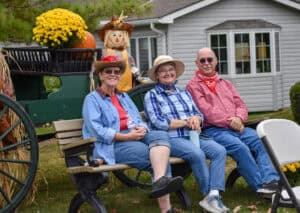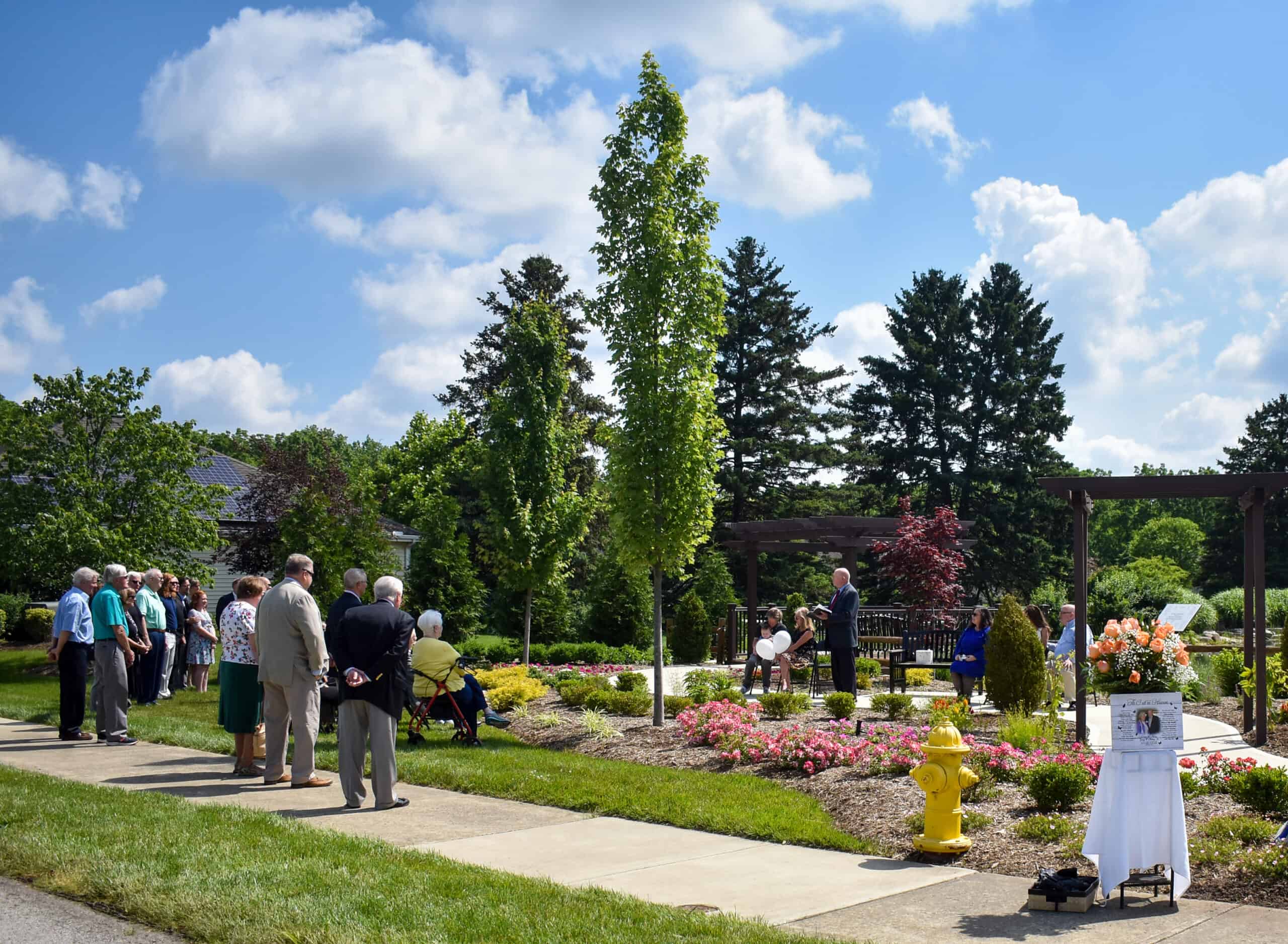
Recent Posts:



Dining Together: Why Shared Meals Matter in Retirement Living
August 20, 2025
No Comments
Read More »
Happy Friday, Babbling Brook readers! Cathy here. In today’s blog installment, we are going to discuss grief and loss. I recently had the privilege of going through a professional training that gave me “tools for the toolbox” with regard to issues of grief and loss, and I would like to share some of my learnings with you.
Far too frequently, we fail to address the realities of grief and loss, especially with older adults. If there are older adults in your life or if you work with and among older adults, as we do at Willow Brook, it is imperative to have a grasp on these issues. We must educate ourselves so that we know how to gracefully respond when our residents, families, and fellow staff members encounter loss.

There was a time in our culture when we took time to mourn the loss of a loved one. It began when we sat with the body of a deceased loved one in our home. Along with this, we had the joy of caring for that person one last time: washing their body, dressing their body, and feeling the physical presence of a beloved in a new way. We rarely, if ever, do those things anymore, and perhaps some people are glad about that. Nonetheless, the closure of those final loving expressions also served to help us on our grief journey. Too often, in today’s go-go-go world, we feel pressure to “get over it” and “move on.” It is not so easy to do that.
Here are some things I learned in my training that I felt were very important to pass on to others. As always, your comments, questions, and feedback are welcomed. An Important Note: If you are a Willow Brook resident, family member, or staff person who has experienced loss or is currently grieving, I encourage you to speak with our chaplain, Adam Metz – you do not have to grieve alone. Your conversation is confidential and Adam is a great listener.
Types of loss
There are four types of loss: developmental, an aspect of self, external objects, and the death of a person (or pet). A person may experience and grieve one or more of these losses at any given time. A loved one might grieve the loss of their cognition or mobility, their home, ability to drive, and/or spouse or other loved one. These are losses that must be acknowledged before we try to make everything OK.
Here is a simple example. When folks move into Willow Brook, they are often leaving their home of many years. This is a loss and it must be named before we tell them how great it will be to live at Willow Brook. We might say, “I am so sorry you have to leave your home of 40 years. I can’t imagine what that must feel like. But in time, I hope you’ll come to think of Willow Brook as home.”

No clichés, please
When addressing someone who has experienced the loss of a loved one, do not use clichés like, “God must have needed another angel,” or, “It’s all part of a greater plan,” or, “At least he’s in a better place.” These are not helpful and may even be hurtful.
Acknowledge the (lengthy) grief process
For the first three months to a year after a loss, the overwhelming emotion is numbness, particularly after the loss of a spouse or loved one. Reality sets in after that. Only at about the 2.5 year mark can the person consider a “new normal” or figure out who they are without their loved one. The grief process is not about checking boxes or going through stages. It is not linear and often ebbs and flows. We should especially keep this in mind as caregivers, staff, and family members.
It does not “get better”
With grief and loss, it does not “get better” in time. It gets different. One’s grief does not change, their capacity to hold it does.
The reality of secondary losses
Secondary losses must be considered when a person passes away. If a spouse or other loved one dies, not only is the person gone, but now there may be no one to handle the finances, take out the trash, take me to my appointments, help me grocery shop, pick up the grandkids, etc.
The role of trauma
Part of my training included a module on traumatic loss. Because there is so much to say about this, perhaps I will do a separate piece on that topic in the future. But for the purposes of this post, it is important to know that a death can be considered traumatic to another person even if it does not seem traumatic to us. It is all about perception: if it is perceived as traumatic, it is. For example, if someone dies while on hospice care, we may not find that surprising. However, for the person or persons experiencing the loss, it may be perceived as coming out of the blue, completely unexpected. We must honor that.
In closing, remember that people are in various states of mind when they are traveling the road of grief and loss. As staff, friends, and family members, we must do everything we can to be educated about the the grief and loss process so that we can travel the road alongside the people we love with compassion and understanding.
Cathy Courtice is Willow Brook’s Director of Community Relations, and will graduate in May 2023 with a Master of Divinity degree from Methodist Theological School in Ohio.



